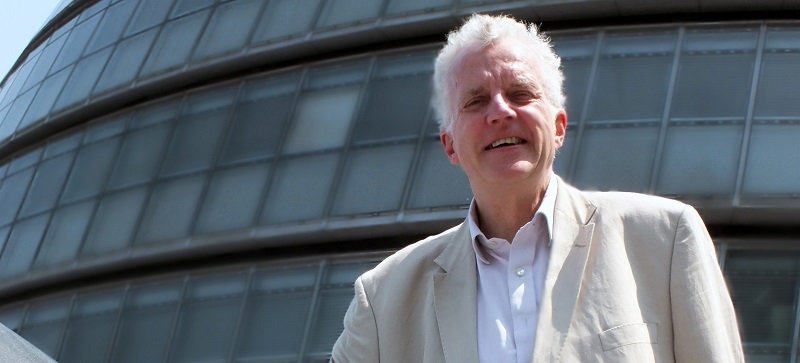When I first met Tim O’Toole, soon after he was appointed to head London Underground, he was deeply ensconced in my book, Down the Tube, the story of the Underground’s ill-fated Public Private Partnership. He was reading it for a second time which illustrated the thoroughness of his approach to the job as he was desperate to understand the concept before starting work.
It was not just through book learning that he was finding out about the Tube. As an American freight railroad man with little passenger experience, he realised he had to get to know the system really thoroughly before starting on the job and to some extent he was fortunate in that delays over the start of the PPP meant that he could not begin work until six months after being appointed. Rather than spend the time sorting out his living arrangements and wandering round London’s numerous art galleries, every day he went round the system talking to staff and passengers, so that by the time he started he knew it better than most long established Tube managers.
You only have to travel with him on the Tube to know how well that experience has paid off. He is fortunate, too, in that he is blessed with an ability to communicate in a way which many British managers lack. Helped by his classless American accent, he can talk to staff of all grades in a way that is not patronising and which makes them feel he is on their side. He is recognised everywhere he goes on the system – his name badge is mostly unnecessary – and warmly welcomed by station staff everywhere. Not a bad achievement for a man who has made no bones about standing up to the unions at various times.
Indeed, this strong relationship with the staff has been especially important in the febrile atmosphere of London Underground’s industrial relations. With Bob Crow threatening strikes in response to every alleged managerial slight, a sure hand is required to diffuse the situation. O’Toole’s standing among the workers has been so strong that the union has been marginalised and despite numerous threats there have been no significant strikes in the past four years. Indeed, O’Toole’s popularity was recognised by the union itself when it recently put out a leaflet naming the fat cats at London Underground which included both O’Toole’s boss, Peter Hendy, the Transport Commissioner, and his number two, Howard Collins, but omitted O’Toole’s because he was regarded as too popular to attack in that way.
O’Toole never sought a huge public profile, preferring instead to operate quietly behind the scenes but he did come to prominence in the aftermath of the 7/7 attacks in 2005, appearing almost constantly on the media and his calm and measured tones did much to help steady Londoners’ nerves. Moreover, by forcing all the various parties to work together without regard for boundaries or costs, he got the damaged lines working within a few weeks when previously the Central Line had been out for months following the much less serious Chancery Lane derailment in January 2003, a few months before O’Toole took up his post.
He was rewarded with a CBE – a rare honour for an American – for his efforts in the aftermath of the attacks but his public profile remained low. In terms of improving the lot for the passenger, he has been hamstrung by the PPP and the usual budgetary constraints but he completely revamped information systems so that all stations now display up to date information of the workings of every line and there are many more public announcements – indeed, sometimes too many when the station managers get lazy and push the buttons for automatic messages which are always ignored by the public.
As for the PPP? He always knew it was a daft way to run a railway, but worked within its limitations without complaint. When Metronet collapsed, he managed to quietly bring much of the work in-house without eliciting a peep of complaint from the Tory mayor.
O’Toole knows that he is leaving a railway with huge potential problems. The PPP money has certainly funded a lot of improvements to the basic infrastructure, at a ridiculously inflated cost, but it has skewed spending far too much towards stations, which no one cares that much about, rather than train services. Worse, not only with the Metronet debacle leave a huge bill for local taxpayers, but there is a clash looming with the other infrastructure company, Tube Lines, over how much the second 7.5 year period of the PPP will cost.
As well as this financial hole, which may be as much as £5bn, the new boss will face the ever-querulous unions who are itching for a fight given that there is bound to be pressure on TfL to tighten conditions and keep salary rises to a minimum.
None of that is O’Toole’s fault. The London Underground has always been at the mercy of decisions by outside bodies, both central and local government as well as various private interests, and that is no different today. But without a man of O’Toole’s stature to manage it over the past six years, the Tube system would be in a far worse state than it is today. His successor has an almost impossibly tough act to follow.
